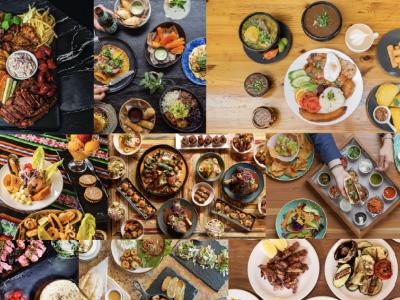When Susana Baca burst onto the international scene in 1995, the music of Peru’s African population was little recognised either internationally or in Peru itself, where, like every where, racism is still rife. Baca experienced this "in my own flesh…it's been a painful chapter in my life, and when I recall it I can't help feeling a deep sense of unease."
Baca grew up in a Chorrillos, previously a coastal village but now a seaside barrio (suburb) of southern Lima. It was there that Baca was steeped in the cultural legacy of Africans brought to Peru by the Spanish slave trade.
“I come from a culture and a place where music is natural,” she says. “And since I was young I was always curious about the origins of songs we sang.”
Baca became a studier of afro-Peruvian roots, writing books and making recordings based on her fieldwork in towns like Chorrillos, Trujillo and El Carmen. In 1992 she founded the Instituto Negrocontinuo with her husband Ricardo Pereira to preserve the music and culture of black Peru for future generations; songs of Afro-Peruvians such as Lucila Campos and Chabuca Granda and instruments unique to Afro-Peruvian music.
"Through this process,” Susana says “I came face to face with the past and I had to be strong. I read a lot; it wasn’t very pleasant. There were moments I didn’t want to continue, I didn’t want to know anymore about the atrocities of history."
But, she says the process was necessary. “The amount of music lost in Peru is incredible. An old musician dies and his tradition dies with him. The worst part is that the youth don’t know about it. Young people go to the Andean, but they can’t locate the Afro.”
Though Baca recorded three albums in Peru, it was not until 1995 when the Scottish rock star David Byrne (Talking Heads) included her rendition of "Maria Lando," a heartbreaking ballad of worker oppression, on his compilation The Soul of Black Peru.
Her debut album for Luaka Bop, Susana Baca, produced by Greg Landau, brought her to the attention of audiences worldwide. A mixture of traditional and contemporary, many of her songs are based on traditional forms such as the landó or vals, she also incorporates elements of Cuban and Brazilian music.
With Baca’s music, came a plethora of Afro-Peruvian instruments: the cajón ("wooden box", whose origins lie in an upturned fruit crate), udu (clay pot), and quijada (jawbone of a burro) cheko a dried gourd, as well as acoustic guitar and electric upright baby bass. By then, the cajón was strangely knwn by many as a Flamenco instrument, aftre it was adopted by Paco de Lucia and Camarrón during one of their visits to Peru, and many Flamenco fans had no knowledge of the instruments Peruvian origins.
Baca went on to record 7 more albums for Luaka Bop with her 2002 album Lamento Negro, winning the Latin Grammy Award for Best Folk Album and a nomination for the Grammy as "Best World Music Album".
She spent the last 15 years gracing the stages of theatres and festivals around the world, with her trademark flowing shawls and barefoot dances and her divine aura, the songs that she brought celebrated by the finest musicians in the world.
In July 2011 she became the Cultura minister in the government of Peru’s the newly elected Ollanta Humala, becoming the second Afro-Peruvian cabinet minister in the history of independent Peru. In November 2011 she was elected to the Organization of American States (OAS) as President of the Commission of Culture for the period 2011–13.
In the same month, Baca won the second Latin Grammy of her career for her collaboration with urban group Calle 13 on the song "Latinoamérica", which was recorded in Peru, also featuring Brazilian singer-songwriter Maria Rita and Colombian recording artist Totó la Momposina.
Today, elevated to the status of national treasure, her Institute continues to investigate Afro-Peruvian culture, and help several young artists record and publish new material. The music of black Peru is still in many ways “the music of the ghetto,” says Susana. “Blacks are still second- or third-class citizens. “Looking at our past is something that everyone of African origin has to do because our past is immersed in the history of slavery; and that has to be confronted and acknowledged. I don't want children today to live through what I have lived through."















